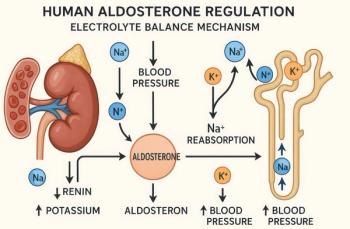
VAS-COG: Hypertension Linked to Cognitive Decline in Older Patients
SAN ANTONIO -- Uncontrolled hypertension in older patients increases the risk of cognitive impairment, researchers reported here.
SAN ANTONIO, July 12 -- Uncontrolled hypertension in older patients increases the risk of cognitive impairment, researchers reported here.
Hypertensive patients had a 70% greater risk of non-amnestic mild cognitive impairment compared with nonhypertensive patients (P=0.05), Christiane Reitz, M.D., Ph.D., of Columbia University in New York said at the International Society for Vascular Behavioral and Cognitive Disorders meeting.
Examination of different components of cognitive function showed that hypertension significantly affected the rate of decline in executive performance over time but not memory or language performance, said Dr. Reitz.
"These results suggest that prevention and treatment of hypertension may lower the risk of cognitive impairment in elderly patients," she said.
Studies examining the relationship between hypertension and dementia and Alzheimer's disease have yielded inconsistent data. Most long-term investigations have shown an association between higher blood pressure and an increased risk of dementia, said Dr. Reitz. Cross-sectional and short-term studies have generally shown no association or an inverse association.
Continuing the exploration of hypertension's impact on cognitive function, investigators in the current study sought to determine whether hypertension increased the risk of mild cognitive impairment. They also wanted to see whether hypertension accelerated the decline in cognitive performance over time.
The study involved 918 patients ages 65 and older without cognitive impairment or dementia at baseline. Hypertension was defined as blood pressure at 140/90 mm Hg or greater, current antihypertensive therapy, and a history of hypertension. By those criteria, 626 participants had hypertension at enrollment.
Mild cognitive impairment was defined by four criteria:
- Subjective memory complaint
- Objective impairment in at least one cognitive domain
- Preserved activities of daily living
- No diagnosis of dementia
Cognitive impairment was further defined as amnestic or non-amnestic. Amnestic cognitive impairment was characterized by isolated impairment in memory or impairment in memory and one or more other cognitive domains. Patients with non-amnsetic impairment had no impairment in memory but impairment in two or more other cognitive domains.
The study participants were enrolled from 1992 through 1994 and followed at 18-month intervals. Follow-up visits included a battery of neuropsychological tests that assessed memory, abstract reasoning, visuospatial ability, and language skill. Median follow up was about 5 years.
The hypertensive patients differed from the nonhypertensive group in several baseline characteristics. The hypertensive group included more women (73.6% versus 61.0%, P=0.05) and more patients with a history of stroke, diabetes, and heart disease (P=0.05 for each).
At last follow up, 334 patients met one or more criteria for mild cognitive impairment. Overall, hypertensive patients had a 40% greater relative risk of mild cognitive impairment compared with the nonhypertensive patients (RR 1.4, P=0.05). Grouping patients by type of impairment showed that the overall difference in incidence of cognitive impairment owed to a significant difference in non-amnestic impairment in the hypertensive group (RR 1.7, P=0.05).
In a multivariate analysis that controlled for age, sex, education, and ethnic group hypertension significantly (P=0.01) affected the slope of change in executive performance but not memory or language performance. Dr. Reitz said the finding was consistent with hypertension's association with non-amnestic mild cognitive impairment.
Newsletter
Enhance your clinical practice with the Patient Care newsletter, offering the latest evidence-based guidelines, diagnostic insights, and treatment strategies for primary care physicians.

































































































































